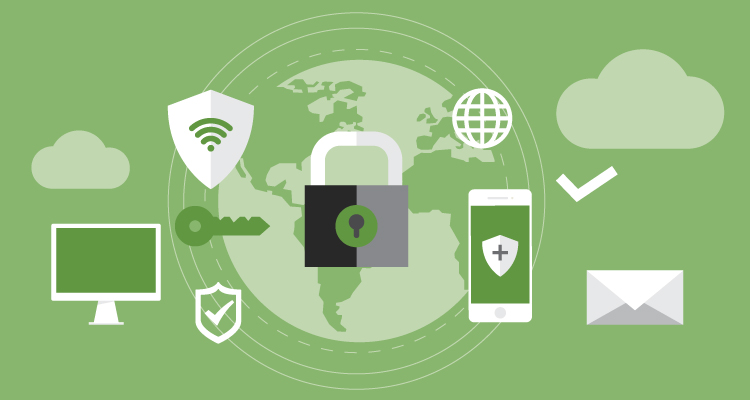Just how prevalent is compromised data? According to research by the Privacy Rights Clearinghouse, an estimated 9,044 public data breaches have occurred since 2005 — with more than 10 billion records exposed. That makes safeguarding your company’s data a significant challenge.
And, with household names like Capital One and Facebook (to name a few) experiencing massive breaches, data threats loom over companies that gather and leverage user information. But if major corporations are susceptible to hacking, what hope do smaller organizations have of protecting their customers’ data?
Yet, one thing is clear. This problem isn’t going away. Part of data vulnerability stems from the public’s growing online presence. As more users connect, hackers have more opportunities to steal personal data; this has prompted lawmakers from all 50 states to pass security breach notification laws. The legislation requires companies to report data breaches when they happen, which may be part of the reason it feels like the number of breaches has increased — we’re just more informed when they happen.
While hackers attempt to expose this data, companies rely on it for a growing number of uses. Thanks to the increasing emphasis on analytics, consumer habits, metrics, and personal data, it’s time to start safeguarding your company’s data. Investing in resources like third-party security vendors and educational tools can help protect this valuable and sensitive information.
Table of Contents
ToggleCybersecurity Challenges For Safeguarding Your Company’s Data
When focused on safeguarding your company’s data, you might consider third-party vendors. Unfortunately, this can leave their data at the mercy of external viewers and vulnerable to breaches.
Even without a third-party vendor, it can be a challenge to ensure your data’s safety. IT decision-makers struggle to get organizational buy-in on cybersecurity’s importance, which poses a major hurdle to implementing proper security procedures and risk-reduction strategies. Updated education and training can prevent security risks by teaching employees how to allay and respond to breaches. It won’t, however, be useful in conjunction with NETGEAR Version 1.0 or other outdated software.
As breaches evolve and become more sophisticated, so should your security. This is especially important when working with third-party vendors. Avoid risk by implementing updated security software with strong encryption services to ensure your data isn’t misused or viewed by unwanted eyes.
Contrary to popular belief, it’s a mistake to rely on malware protection. That’s because malware protection can be penetrated. And, without any other security measures, hackers can easily get to your data.
Ultimately, make sure your team has updated information and platforms to reduce breach risk.
Strengthened Infrastructure
Regardless of your approach, it’s difficult to protect data. To get you started, the following three strategies can help safeguard your data against security breaches:
1. Create a culture of cybersecurity.
First, everyone in the organization — from the CEO to part-time employees — must be aware of what’s necessary to fully commit to cybersecurity. The best way to do this is by creating a culture of cybersecurity consciousness.
Encourage employees to use complex passwords and update their software, operating systems, apps, and browsers frequently. Then, remind them to shut down their computers regularly, which will break any connections a hacker may have with your network. Finally, make sure all team members understand the severity of data breaches so they recognize why they’re taking those measures.
2. Implement a security plan.
Second, if your company has a formal, written plan for preventing data breaches, it will be easier to gain acceptance from employees and key decision makers.
Your security plan should contain information on your company’s anti-virus and anti-spyware software, spam practices, and much more. It should also outline how you’ll assess and measure your security processes to ensure they’re working properly. And, don’t forget to add the reactive steps your team will take if a data breach occurs.
3. Invest in cyber insurance.
Third, even if you have responsible employees and a security plan, human error is inevitable. It’s also out of your control if you work with third-party vendors.
Cyber insurance is a necessary added layer of protection that 26% of firms plan to obtain within the next year. It covers first-party losses and third-party claims, which can assuage some of the costs of a breach. Cyber insurance can offer defense and liability coverage if data breaches lead to legal action. This insurance may also cover other consequences of a breach, such as fines and damages.
Finally, with data breaches happening almost daily, cybersecurity should be at the forefront of every organization. Put processes in place to protect your data and ensure the whole organization — and your customers — have peace of mind.
Vince Dawkins, president and CEO of Enertia Software, has worked with industry-leading organizations and been integral in developing the Enertia application into a resource used by over 150 leaders in the upstream oil and gas industry.














